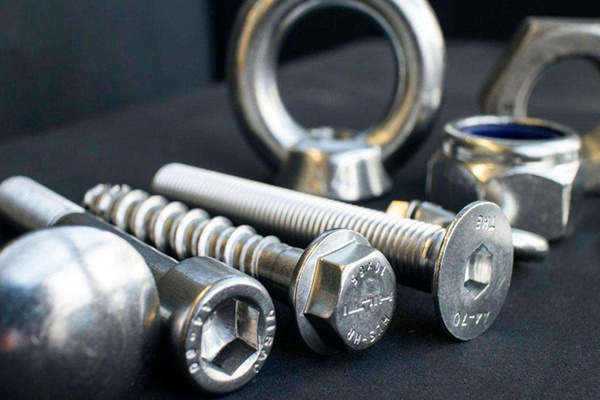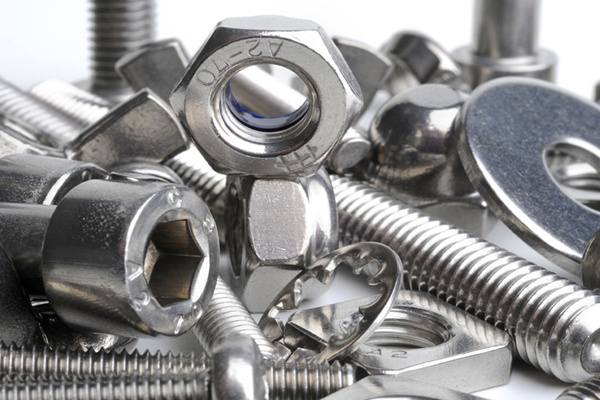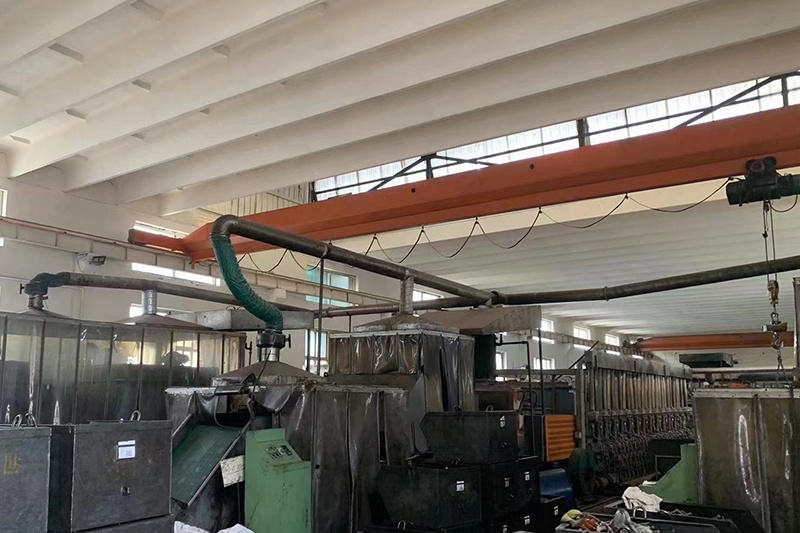language
English
العربية
বাংলাদেশ
Български
Hrvatski
Česky
Dansk
Nederland
 Esperanto
Esperanto
Slovenski
Filipino
Suomi
Français
Maori
 Shqiptare
Shqiptare
Georgian
 Euskara
Euskara
Deutsch
Ελλάδα
ישראל
इंडिया
Magyarország
Ísland
Indonesia
Irlanda
Italia
日本語
Sovensko
Հայաստան
한국
Kyrgyz
ປະເທດລາວ
 Zulu
Zulu
Latvian
Lithuanian
Luxembourgish
 Latinus
Latinus
Macedonian
Малайская
Maltese
Монгол улс
 Cymraeg
Cymraeg
ဗမာ
 தமிழ்
தமிழ்
नेपाल
Norge
ایران
Polska
Portugal
România
Российская
Србија
 Slovak
Slovak
Србија
 Slovak
Slovak
Bosanski
Slovenian
Беларус
España
Sverige
Точик
ประเทศไทย
Türk
Azərbaycan
Uzbek
 Afrikaans
Afrikaans
Việt Nam
Comprehensive Guide: Frequently Asked Questions about Din7991 Allen Countersunk Head Screws
2025-07-03
Frequently Asked Questions about DIN7991 Allen Countersunk Head Screws
Table of Contents
1. Introduction to DIN7991 Allen Countersunk Head Screws
2. What Are DIN7991 Allen Countersunk Head Screws?
3. Specifications of DIN7991 Screws
4. Materials and Coatings Used in DIN7991 Screws
5. Applications of DIN7991 Allen Countersunk Head Screws
6. Advantages of Using DIN7991 A
Frequently Asked Questions about DIN7991 Allen Countersunk Head Screws
Table of Contents
- 1. Introduction to DIN7991 Allen Countersunk Head Screws
- 2. What Are DIN7991 Allen Countersunk Head Screws?
- 3. Specifications of DIN7991 Screws
- 4. Materials and Coatings Used in DIN7991 Screws
- 5. Applications of DIN7991 Allen Countersunk Head Screws
- 6. Advantages of Using DIN7991 Allen Countersunk Head Screws
- 7. Installation Tips for DIN7991 Screws
- 8. Common Issues and Solutions Related to DIN7991 Screws
- 9. Frequently Asked Questions
- 10. Conclusion
1. Introduction to DIN7991 Allen Countersunk Head Screws
DIN7991 Allen countersunk head screws are essential fasteners used in various industrial applications. Their unique design allows for a flush fit, making them ideal for situations where surface smoothness is critical. Their versatility and strength make them a popular choice among engineers and manufacturers alike. In this article, we will answer the most frequently asked questions about these screws, exploring their features, specifications, and benefits.
2. What Are DIN7991 Allen Countersunk Head Screws?
DIN7991 screws are a specific type of fastener characterized by their hexagonal socket drive and countersunk head. These screws conform to the German standard DIN 7991, which outlines their dimensions, tolerances, and mechanical properties. They are designed to be installed using an Allen wrench, also known as a hex key, which provides excellent torque and minimizes the risk of stripping the screw head.
2.1 Key Features of DIN7991 Screws
- **Countersunk Head:** Allows for a flush finish, reducing snagging and providing an aesthetic appeal.
- **Hex Socket Drive:** Enables better torque application and reduces slippage during installation.
- **Versatile Sizes:** Available in a range of diameters and lengths to suit various applications.
3. Specifications of DIN7991 Screws
Understanding the specifications of DIN7991 screws is crucial for selecting the right fastener for your project. The key specifications include:
3.1 Dimensions
DIN7991 screws come in several sizes, commonly ranging from M3 to M10 in diameter. The length can vary significantly based on the application.
3.2 Mechanical Properties
These screws typically have a tensile strength of at least 800 MPa, making them suitable for high-stress applications.
3.3 Surface Finish
DIN7991 screws can have various surface treatments, including zinc plating and passivation, to enhance corrosion resistance.
4. Materials and Coatings Used in DIN7991 Screws
The material selection for DIN7991 screws is vital for ensuring performance and longevity. Common materials include:
4.1 Steel
High-carbon steel is commonly used, providing strength and durability. It can be treated for corrosion resistance.
4.2 Stainless Steel
For applications exposed to harsh environments, stainless steel options offer superior corrosion resistance.
4.3 Coatings
Zinc plating is the most common coating, but other options like black oxide or PTFE coatings may be available for specific applications.
5. Applications of DIN7991 Allen Countersunk Head Screws
DIN7991 screws are utilized across various industries due to their versatility. Common applications include:
5.1 Machinery Assembly
These screws are often used in the assembly of machinery, where a flush surface is required.
5.2 Furniture Manufacturing
In the furniture industry, countersunk screws provide an aesthetic finish, making them ideal for visible applications.
5.3 Automotive Industries
DIN7991 screws are found in various automotive components, providing strength and reliability.
6. Advantages of Using DIN7991 Allen Countersunk Head Screws
Using DIN7991 screws comes with several benefits:
6.1 Aesthetic Appeal
Their countersunk design allows for a smooth finish, making them visually appealing for various applications.
6.2 High Torque Applications
The hex socket drive provides excellent torque, making them suitable for high-stress installations.
6.3 Reduced Risk of Damage
The flush surface reduces the risk of snagging or damage, particularly in delicate applications.
7. Installation Tips for DIN7991 Screws
Proper installation is crucial for the performance of DIN7991 screws. Here are some tips:
7.1 Use the Correct Tool
Always use the appropriate Allen wrench size to avoid stripping the screw head.
7.2 Pre-drilling Holes
Pre-drill holes in softer materials to prevent splitting and ensure a snug fit.
7.3 Torque Specifications
Follow the manufacturer’s torque specifications to ensure optimal performance and prevent stripping.
8. Common Issues and Solutions Related to DIN7991 Screws
Understanding potential issues can help in the effective use of DIN7991 screws.
8.1 Stripped Heads
If a screw head is stripped, use a screw extractor for removal and replace it with a new screw.
8.2 Corrosion
If corrosion occurs, ensure that the screws are suitable for the environment; consider switching to stainless steel if necessary.
8.3 Misalignment
To avoid misalignment, ensure that the holes are drilled accurately and that the screws are driven straight.
9. Frequently Asked Questions
9.1 What is the difference between DIN7991 and other screw types?
DIN7991 screws have a specific countersunk design and hex socket drive, differentiating them from other fastener types.
9.2 Can DIN7991 screws be reused?
While they can be reused, it is recommended to inspect them for wear or damage before reinstallation.
9.3 What sizes are commonly available for DIN7991 screws?
Common sizes range from M3 to M10, with various lengths available to suit different applications.
9.4 Are DIN7991 screws resistant to corrosion?
When made from stainless steel or coated appropriately, DIN7991 screws offer good corrosion resistance.
9.5 How do I choose the right DIN7991 screw for my project?
Consider factors like material, size, and intended application to choose the best screw for your needs.
10. Conclusion
DIN7991 Allen countersunk head screws are a valuable addition to any industrial toolbox. Their unique design, combined with a range of sizes and materials, makes them suitable for numerous applications across various industries. By understanding their specifications, advantages, and proper installation techniques, you can ensure optimal performance and longevity. For any project requiring flush finishes and high reliability, DIN7991 screws should be your go-to choice.
Din7991 Allen countersunk head screw
RELEVANT INFORMATION
Comprehensive Guide: Frequently Asked Questions about Din7991 Allen Countersunk Head Screws
Frequently Asked Questions about DIN7991 Allen Countersunk Head Screws
Table of Contents
1. Introduction to DIN7991 Allen Countersunk Head Screws
2. What Are DIN7991 Allen Countersunk Head Screws?
3. Specifications of DIN7991 Screws
4. Materials and Coatings Used in DIN7991 Screws
5. Applications of DIN7991 Allen Countersunk Head Screws
6. Advantages of Using DIN7991 A
2025-07-03
Understanding ISO7380 Allen Pan Head Screws: A Comprehensive Guide for Professionals
ISO7380 Allen pan head screws are integral components widely utilized in various industrial applications. Defined by their unique design featuring a rounded, pan-shaped head and an internal hexagon socket, these screws facilitate efficient fastening and assembly processes. The ISO7380 standard ensures that these screws meet stringent quality and dimensional specifications, making them a reliable c
2025-06-30
The Role of Hexagon Drill Tail Screws in Sustainable Manufacturing Practices
The Role of Hexagon Drill Tail Screws in Sustainable Manufacturing Practices
In an era where sustainability is paramount, industries are constantly seeking ways to minimize their environmental impact while maintaining efficiency and cost-effectiveness. Among the myriad components that contribute to sustainable manufacturing, **hexagon drill tail screws** have emerged as a crucial element. This art
2025-06-27









